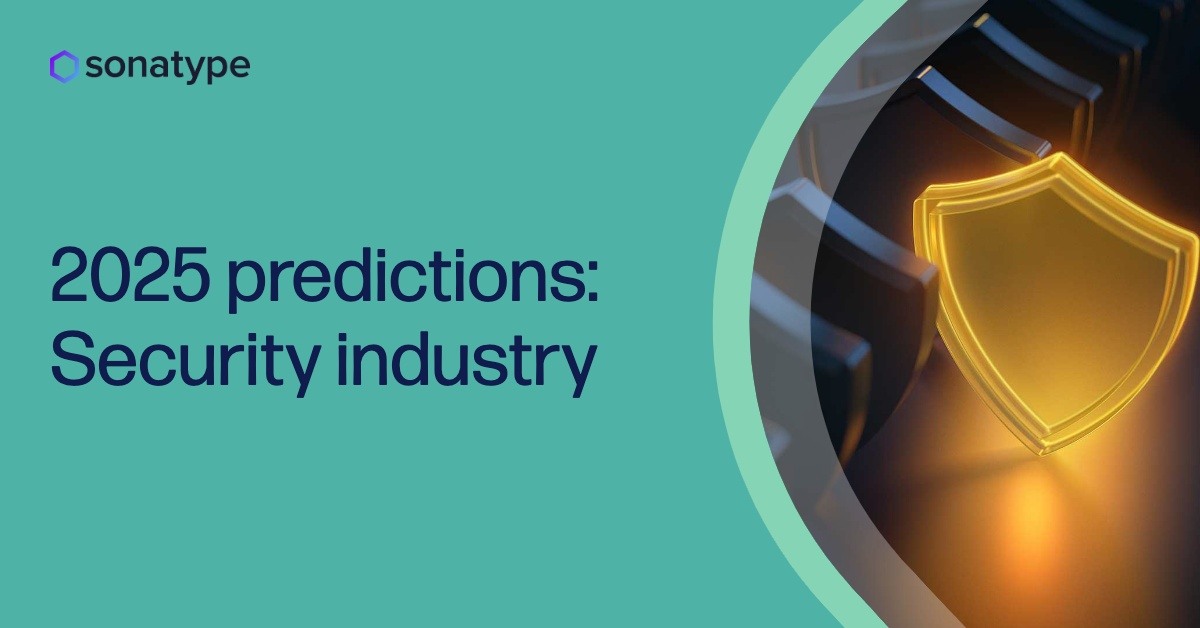2025 Predictions: Security Industry
3 minute read time

The pace of change in the technology industry has never been faster, and 2025 will be no exception. As businesses adapt to new threats, regulatory pressures, and AI-driven innovations, security and software development teams will need to rethink their strategies to stay ahead.
This year, we anticipate a shift in how leaders approach cybersecurity, consolidation, and software development — reshaping the way organizations build, secure, and scale their technology.
From the increasing role of developers as strategic decision-makers to the pressures of industry consolidation and the growing need for predictive security, the year ahead will be defined by transformation. Here's what our experts predict for the security industry in 2025.
Predictions
Cybersecurity Leaders Will Focus on Seeing the Future without Losing the Fight
"Security leaders often feel like the Cyclops of Greek mythology — able to foresee potential threats but hindered by significant obstacles in preventing them. In 2025, the stakes will only rise as AI-driven attacks and advanced open source malware targeting developer and DevOps toolchains become more prevalent. The real challenge won't just be predicting these threats; it will be equipping software teams with the tools, processes, and agility to stop them before they strike." — Mitchell Johnson, Chief Product Development Officer
Industry Consolidation
"After years of heavy venture capital investment, we're going to see a wave of consolidation in the cybersecurity industry, with many firms merging or being acquired. On the end-user side, financially strained companies are now re-evaluating their security tools, balancing the need for versatile, effective defenses with tighter budgets and increased regulatory demands. The imperative for security teams is clear: they must do "more with less." They will have fewer resources, less budget, and fewer choices in the market. This means choosing adaptable, reliable solutions that prevent overlap and avoid unnecessary complexity, delivering defense without crippling the budget." — Ilkka Turunen, Chief Field Technology Officer
2025 Will Mark the New Era of Software Developers as Strategic Innovators
"The role of a developer has evolved dramatically over the years, and that evolution isn't slowing down. In 2025, developers will focus less on custom coding and more on selecting, integrating and optimizing the best components to build great software. As AI handles repetitive tasks and suggests smarter ways to solve problems, developers will transform into strategic innovators driving the business forward. The real differentiator will be their ability to deeply understand and solve market problems — not just build software faster and cheaper. The gap between the "10x" developer and everyone else will widen and increasingly be defined by those who adopt the best AI-driven toolset and those who do not." — Mitchell Johnson, Chief Product Development Officer
Staying Ahead in a Rapidly Changing Industry
As 2025 unfolds, the industry will continue to face new challenges — but also new opportunities. Leaders will need to balance foresight with action, businesses will navigate a changing vendor landscape, and developers will take on more strategic roles in shaping the future of software.
The companies that succeed will be those that embrace adaptability, leverage the best tools, and stay ahead of the curve.
While no one can predict the future with absolute certainty, one thing remains clear: innovation isn't slowing down, and neither is the need for smarter, more resilient approaches to security and software development.

Aaron is a technical writer on Sonatype's Marketing team. He works at a crossroads of technical writing, developer advocacy, software development, and open source. He aims to get developers and non-technical collaborators to work well together via experimentation, feedback, and iteration so they ...
Explore All Posts by Aaron LinskensTags

Try Nexus Repository Free Today
Sonatype Nexus Repository is the world’s most trusted artifact repository manager. Experience the difference and download Community Edition for free.